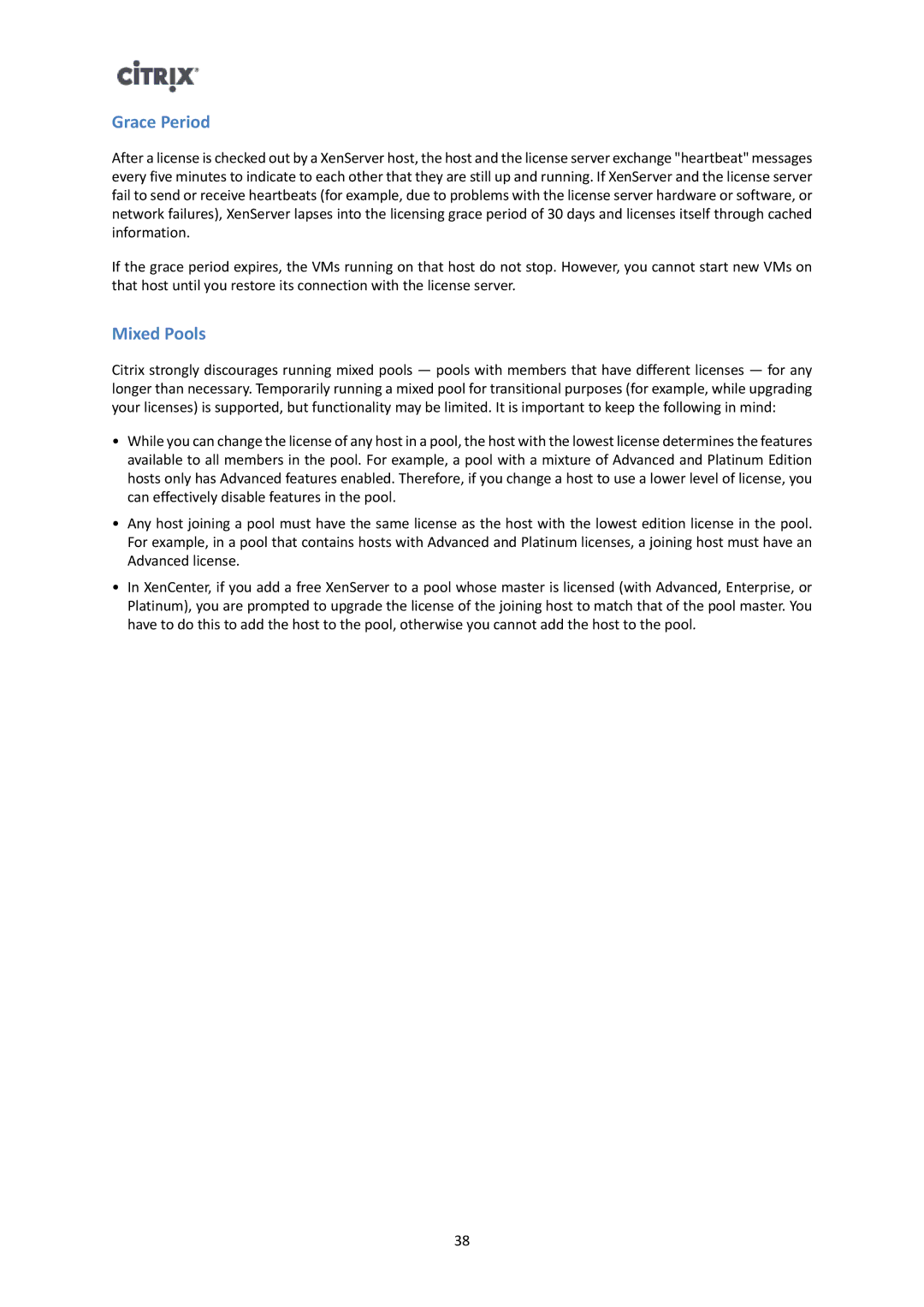Grace Period
After a license is checked out by a XenServer host, the host and the license server exchange "heartbeat" messages every five minutes to indicate to each other that they are still up and running. If XenServer and the license server fail to send or receive heartbeats (for example, due to problems with the license server hardware or software, or network failures), XenServer lapses into the licensing grace period of 30 days and licenses itself through cached information.
If the grace period expires, the VMs running on that host do not stop. However, you cannot start new VMs on that host until you restore its connection with the license server.
Mixed Pools
Citrix strongly discourages running mixed pools — pools with members that have different licenses — for any longer than necessary. Temporarily running a mixed pool for transitional purposes (for example, while upgrading your licenses) is supported, but functionality may be limited. It is important to keep the following in mind:
•While you can change the license of any host in a pool, the host with the lowest license determines the features available to all members in the pool. For example, a pool with a mixture of Advanced and Platinum Edition hosts only has Advanced features enabled. Therefore, if you change a host to use a lower level of license, you can effectively disable features in the pool.
•Any host joining a pool must have the same license as the host with the lowest edition license in the pool. For example, in a pool that contains hosts with Advanced and Platinum licenses, a joining host must have an Advanced license.
•In XenCenter, if you add a free XenServer to a pool whose master is licensed (with Advanced, Enterprise, or Platinum), you are prompted to upgrade the license of the joining host to match that of the pool master. You have to do this to add the host to the pool, otherwise you cannot add the host to the pool.
38
